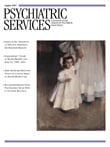Shock: The Healing Power of Electroconvulsive Therapy
Judy Garland, Thomas Eagelton, Connie Francis, Jimmy Piersall, Frances Farmer, Janet Frame, Cole Porter, Tammy Wynette, Gene Tierney, Martha Manning, Leonard Roy Frank, Vladimir Horowitz, Ernest Hemingway, Sylvia Plath, William Styron, and Dick Cavett. Virginia Cunningham, Randle Patrick McMurphy, Chief Bromden, and Homer Simpson. Stelian Dukakis, Al Peters, and Kitty Dukakis. What all of these individuals, who have been in the public eye, have in common is that all have been treated with electroconvulsive therapy (ECT). The last in the list, Kitty Dukakis, is the coauthor of Shock . Stelian Dukakis and Al Peters are her brothers-in-law. Dukakis's companion in the writing of Shock is Larry Tye, whose other credits include stints as a journalist for the Boston Globe and a journalism professor at various Boston universities.
Dukakis and Tye have put together a book that is much like a seven-layer cake. They write alternating chapters with quite different textures. Dukakis's chapters are entirely first-person accounts; Tye takes us through the entire history of ECT. Together the two separate parts work much better than either would standing alone.
Dukakis provides a no-holds-barred presentation portraying the depths of her depression, the extent of her alcohol and substance abuse, and the degraded states that the combination of the two led her to. Her existence at nadirs is realistically and painfully portrayed. Her concerns about initiating ECT are amplified beyond what many might fear about this procedure. Her concerns were magnified by Stelian Dukakis's problematic experiences with ECT when he was a college student.
Tye presents a thoughtful analysis of the waxing and waning of the popularity of ECT. He makes a very good case for its more recent reemergence as a bonafide treatment with progressively greater acceptance. He describes the exploits of the earliest proponents of ECT and gives great credit to its more recent champions, contrasting them with "most psychiatrists [who] were willing to give up without a fight, dropping the 'dirty drug' of electroconvulsive therapy in favor of shelves full of psychopotions and renewed faith in Father Freud."
Although quite well written and engaging, the book has some minor missteps that are somewhat off-putting. Tye consistently refers to persons with mental illness as "the mentally ill." Medications are sometimes misspelled, for example, clozapine is spelled "chlozapine." State hospitals are referred to as "nut houses."
Both Tye and Dukakis address the issue of the memory loss, and both do so thoroughly and thoughtfully. Dukakis presents a personal cost-benefit analysis about memory loss and concludes, "The control electroconvulsive therapy gives me over my disabling depression is worth this relatively minor cost. It just is. It's a quid pro quo, like everything we do in life."
Shock is recommended to all professionals not only to inform themselves about the history and current state of ECT but also so they can recommend it to patients. Any patient considering ECT would do well to read Dukakis and Tye's take on this intervention. There is no better material currently available that would allow a patient to provide true informed consent for ECT than reading Shock cover to cover.



